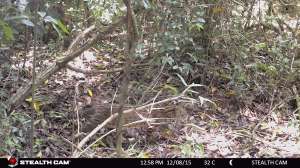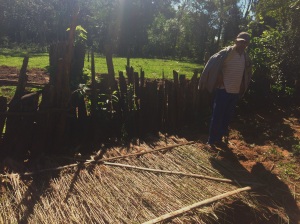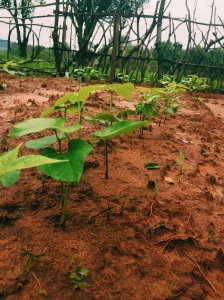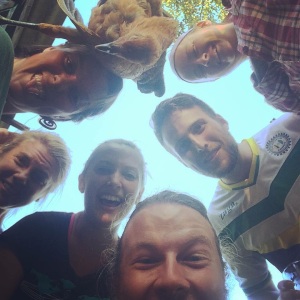“In our togetherness, castles are built” -Irish Proverb
Óga Ita, Itapúa, Paraguay
I’m finding that the longer I’ve been in Óga Ita (almost six months!) and the more that I engage with my community, the more comfortable I feel and the more I love the people here. I’m beginning to feel more at home, however short my time here may be, and I’m starting to realize how welcoming my community members are. I am still, and will always be, the freak entertainer who typically puts on a good show, but now I know that instead of them laughing out of malice, they’re laughing because sometimes, I truly do sound/look/act stupid. And that’s something we can really all laugh at together- oñondive.
Yesterday, I did my first big group project with my women’s committee. At their request, I searched for and found the ingredients for homemade detergent. They were all instructed to bring a plastic bottle to take some home in and we would make the detergent, I’d explain to them the ingredients, tell them where to buy them in Encarnación, and then we’d all be on our merry way to cleaner dishes. Things don’t work out the way we want them too. First, we showed up and the President was no where to be found. Everyone is just kind of sitting around on her front lawn until I see her stepping out of their outdoor shower, toweling her hair, and completely 100% unprepared for this meeting. But that’s okay because us Peace Corps volunteers are adaptive by nature so I just launch into my spiel about caustic soda and magnesium sulfate and other things that I had trouble pronouncing in Spanish and explaining in Guaraní. My host mother later referred to this whole meeting as “un disastre” because no one listened, the committee President was slow getting there, I basically made the detergent by myself, they argued for an hour about how to pay me for the supplies, I misunderstood A LOT of mumbled Guaraní, got made fun of because nantendei -I don’t understand- and then they argued more about who will do the request from the municipality for chicks while the committee President’s husband tried to ‘sell’ one of his daughters to my mom for my single host brother and community contact, Lalo. He needs a woman. I just stood there and took money. Overall, I’d say it wasn’t too much of a disastre. They liked the detergent, said that it was, and this is a direct translation, very creamy, and I made money that I forgot they owed me. We all won, maybe even Lalo. Particularly, this experience showed me which women I’ve come to know and grown closest with. The women that are in my family, who I spend the most time with, and the ones I visit most often, defended my Guaraní, thanked me for doing this, and were patient and caring and funny throughout the whole process. In this job as volunteer, it pays well to integrate well.
After the detergent meeting, I walked home with my mom and Marlene, my sister-in-law and we stopped at the despensa, which is a small store in someone’s home where they sell dry goods and hygiene products and sometimes, if you’re lucky, vegetables, clothing, or even hardware. My mother promptly tried to sell Stella, the owner, the liter of detergent that she had just paid me 3000 Guaranies for, for 5000. She would have gotten away with it if I hadn’t started laughing halfway through the sale. On the way home, I was informed that tomorrow (which is today as I’m writing this) is the anniversary of my mother’s mother’s death, which calls for a rezo. Typically, a rezo is just a remembrance of someone who passed and it involves the whole family and lots of prayer and even more food. On an anniversary rezo like today, it’s very relaxed and the family just comes together to enjoy each other’s company. Rezos also occur as a kind of wake following an immediate death. There’s typically a lot of wailing for a lot of consecutive days at those. And for some reason, the food isn’t as good. For today, my mom told me, we would make sopa paraguaya, the standard Paraguayan cornbread, and could I please be of assistance and help them grind corn tonight? Now, I haven’t really hung around my host family’s house since I started cooking for myself, but last night, grinding corn in the dark with my mom and Marlene and joking around about the detergent meeting and my great grinding skills has to be one of my favorite moments here in site. There’s something so amazing about having a family here, people who help me find projects and feed me and care about my well-being and make me feel at home. My mom asked why I never came over to drink terere anymore. Was I mad? “No, I’m just enjoying my independence” isn’t a great answer, so I replied, “No! It’s just…. Uh… Cold.” She laughed and said, “well come mate”. So I’ve resolved to come mate more often and hang with my family.
For lunch, we ate a corn and guinea foul stew and sopa, in which the corn was grinded perfectly thank you, and after a prayer for my dear departed grandmother, we stepped outside to digest and chat. I was kind of looking for an excuse to leave, as everyone was speaking rapid fire Guaraní and smoking, but I felt awkward and looked longingly over at my little house off to the side of our grazing pasture. That’s when I noticed Chile, one of our dogs, dart out of my open door with my bag of cat food hanging from his mouth and head into the woods. I’ve never moved so fast. I probably looked a fool sprinting in my Birkenstocks and oversize wool sweater, bounding over three fences, wood and electrified and barbed wire alike (no injuries Gracias a Dios) to get to this dog and get back my cat food. He saw me coming and tried to move a bit faster, got cornered into a thicket of vines and then just gave up the bag. As I headed back to my house with my prize, I saw everyone staring, jaws slack at my antics. Thank you, thank you very much, I’ll be here all year for your entertainment purposes. This was one of those moments I was talking about where we all laugh at my stupidity.
In other news related to cat food, I found out that my cat Stella, is actually a ‘Stello’ so to speak. Because I don’t think I’ve ever seen a girl cat with that kind of….. umm… arousal…. before. So now I have Moritz, which is apparently the sixth most popular cat name in Germany and it made me laugh. So now I have Moritz and a decreased fear of kittens anytime soon. I like it just the two of us.
All of this hit me as I had just gotten back from Chara’s and my biweekly grocery excursion. Because of our terrible bus schedule, we spent a day and a night at Hannah’s site, Ita Verá, which is close to Trinidad. Chara, Hannah, and myself were good friends during training, placed together in Itapúa, and have been dubbed El Trio Tramposo or The Trampy Trio by our language professor when the three of us started beating him at cards. We always have a raucously good time when we get together, no matter where. Hannah’s host family has met us once before, when we went to the watermelon festival, and are fun hosts for a good Trio Tramposo reunion. We cooked Mexican food for those who were brave enough to try it, played pictionary with the youngest girls, laughed and drank bad boxed wine while squished into Hannah’s tiny house, and explored the rolling hills of Ita Verá the next day. We climbed a tall hill that had three big boulders perched on top and sat together, the trio, talking about life and service and food and travel and the U.S. and Paraguay and dinosaurs and poetry and the past and the future. It’s my favorite moment of the three of us so far, sitting on a rock on a hill in Paraguay, together.
This is my life. It throws a curveball every chance it gets, but I think it keeps my on my toes so that I don’t get lazy. At least I don’t go it alone. I have support in so many forms- family, host family, a dysfunctional women’s committee, Moritz, my friends and fellow volunteers- and I every day I’m grateful for them. Oñondive means ‘together’ in Guaraní and at this moment in time, it describes my service as is.

Ña Aida makes detergent while Ña Rocio makes fun of her

MORITZ

Hannah’s little house that she built herself!

Hannah and I and Itapúa
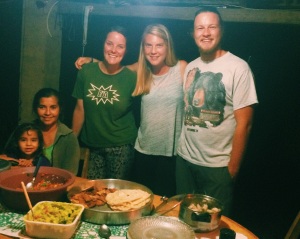
The Trio, Maria, Tutu and the Mexican food






